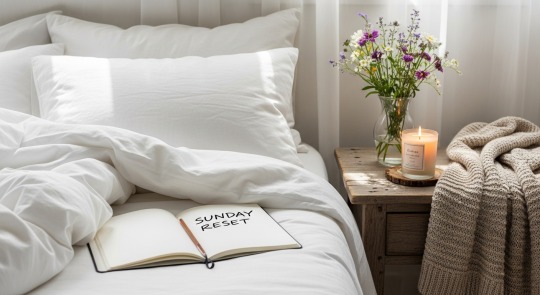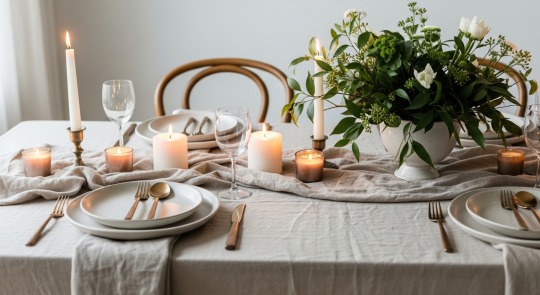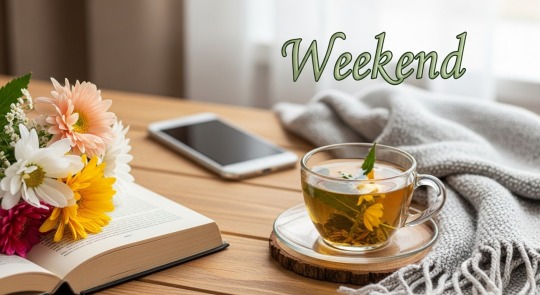#SoftLifeGoals
Explore tagged Tumblr posts
Text
Is Sleep Tourism Worth the Hype? I Tried It in 2025 and Here’s What I Learned

For years, I thought vacations were all about sightseeing, adventure, and packing as much activity as possible into a few days.
But in 2025, a new kind of travel trend caught my eye: Sleep Tourism.
It sounded odd at first — why would anyone pay to travel just to… sleep? But after trying it for myself last month, I finally understood the hype. And honestly? I’d do it again in a heartbeat.
What Is Sleep Tourism?
Sleep Tourism is exactly what it sounds like: Travel experiences designed around rest, relaxation, and improving sleep quality.
Hotels and resorts now offer:
Specially designed sleep suites
Pillow menus (yes, menus for pillows)
Sleep meditation and sound bath sessions
Circadian lighting setups
No-phone policies and digital detox retreats
Expert-led sleep coaching
It’s not just a gimmick — it’s a response to a world where sleep deprivation is an epidemic.
Why It’s Trending in 2025
In an age of:
Constant screen time
Stressful work cultures
24/7 online noise
People are craving intentional rest like never before.
Sleep Tourism taps into: The wellness travel boom The soft life and slow living trends The digital detox movement Health-conscious, burnout-weary millennials and Gen Z
And honestly? It makes sense. Because when was the last time you came back from a trip actually rested?
My Sleep Tourism Experience
I booked a 2-night stay at a boutique “sleep hotel” on the outskirts of the city.
Here’s what it included:
Aromatherapy pillow mists
Weighted blankets
Zero-blue-light rooms
Sleep meditation playlists
Herbal teas instead of minibars
No TVs or WiFi in the rooms
Sunrise wake-up lamps instead of phone alarms
The result?
Fell asleep in under 15 minutes (I usually take an hour)
Slept 8+ hours both nights
No 3 AM doomscrolling
Woke up genuinely refreshed
And the biggest surprise? I didn’t miss my phone or Netflix at all.
Would I Recommend It?
Absolutely — if you:
Struggle to sleep
Feel constantly drained
Want to truly reset your mind and body
Are curious about wellness travel without the pressure of activities
Even if you don’t book a luxury retreat, you can recreate elements of it at home too.
Quick Sleep Tourism At-Home Ideas:
Turn your phone on airplane mode at 9 PM
Try a sleep playlist or white noise
Use a lavender pillow spray
Swap blue light bulbs for warm white
Make one night a week a no-screen evening
It’s simple, but life-changing.
Final Thought
Sleep isn’t a luxury — it’s a survival tool. And in 2025, we’re finally treating it that way.
Sleep Tourism might sound trendy, but it’s really a return to something ancient: prioritizing deep rest.
Whether you book a retreat or just build your own soft-life sleep sanctuary, trust me — it’s worth it.
#SleepTourism2025#WellnessTravelTrends#SlowLivingVibes#SoftLifeGoals#DigitalDetoxRetreat#SleepSanctuary#RestIsProductive#MindfulLiving2025#CozycoreTravel#SleepWellnessCulture
0 notes
Text
My Simple Sunday Reset Routine That Keeps Me Calm, Organized, and Sane All Week

I used to dread Mondays. Sunday evenings were a swirl of anxiety — laundry undone, unread emails piling up, meals unplanned, and my brain racing with everything I hadn’t finished.
That changed the day I started my Sunday Reset Routine.
It’s not a rigid checklist. It’s a calm, simple set of habits that help me clear my space, calm my mind, and get ready for the week ahead.
And honestly? It’s saved my sanity.
Why a Sunday Reset Works
In 2025, when our weeks move faster than ever — a dedicated, mindful Sunday reset is like giving yourself a mental and physical refresh button.
It reduces: Monday anxiety Decision fatigue Household chaos
And boosts: Productivity Mood Sleep quality
My Go-To Sunday Reset Routine
1. Light Clean & Declutter
Quick tidy-up of surfaces
Fresh bed linens
Empty the trash and inbox
Sweep or vacuum just the high-traffic areas
2. Simple Meal Planning
Write down 3-4 easy meals for the week
Prep a batch of overnight oats and a snack box
Check the fridge for groceries to use up
3. Digital Detox Hour
Log off social media for 1 hour
Journal a few thoughts about the past week
Read a physical book or just sit on the balcony
4. Self-Care Ritual
Warm shower with calming music
Skincare without rushing
Herbal tea and a candle-lit evening
5. Set Tiny Intentions for Monday
List 3 small things I want to do, not just need to
Example: “Listen to that new podcast” or “Wear my favorite outfit”
What It’s Done for Me
I start Mondays without panic My apartment feels lighter and calmer I spend less money on impulse takeout I sleep better on Sunday nights I feel in control, even if the week gets wild
Tips If You Want to Start One
Keep it flexible — no strict to-do list
Focus on small tasks with big impact
Include one pleasure ritual (tea, music, candle, skincare)
Use it to unplug, not overplan
It’s about resetting your energy, not creating pressure
Final Thought
You don’t need a 20-step productivity plan to reset your week.
Sometimes, a few calm, mindful habits on a Sunday evening can create more peace and stability than any planner app.
And in 2025, where peace is the new luxury — that’s everything.
#SundayReset2025#SlowLivingVibes#CozycoreRoutine#MindfulWeekPrep#SoftLifeGoals#DigitalDetoxSunday#SelfCareRituals#MinimalistLiving2025#IntentionalLiving#SundaySelfCare
0 notes
Text
Inside the Silent Dinner Trend: Why Eating in Silence Is 2025’s Most Surprisingly Healing Ritual

A few years ago, dinner parties were all about playlists, cocktails, and lively conversation.
Fast-forward to 2025, and a new kind of gathering is quietly taking over: Silent Dinners.
Yes — dinners where guests agree to eat together in total silence.
It might sound odd at first. But after attending my first one last month, I get why it’s catching on. And honestly? It was one of the most peaceful, surprisingly emotional experiences I’ve had this year.
What Is a Silent Dinner?
A Silent Dinner is exactly what it sounds like:
No talking during the meal
No phones or digital distractions
Just mindful eating, ambient background music (optional), and quiet company
It can be at someone’s home, a community event, or even trendy restaurants in cities like Tokyo, London, and Bengaluru now offering them on weekends.
Why It’s Trending in 2025
In a world of:
Non-stop notifications
Performative social media dinners
Doomscrolling between bites
People are craving intentional, peaceful connection without the pressure to perform.
Silent Dinners offer: A rare chance to be fully present A mindful eating experience (food genuinely tastes better when you pay attention) A calming social reset in a noisy, hyper-connected world
It’s part of the broader Soft Living, Cozycore, and Digital Detox movements.
How It Actually Feels
I was nervous walking into my first one. Would it be awkward? Would people stare? Would it feel like a weird wellness cult ritual?
But the silence wasn’t awkward. It was… comfortable. Soothing. A quiet permission to just be.
I noticed:
The actual texture of my food
The sound of my fork against the plate
The flicker of candlelight
The calming presence of people nearby, without small talk
The quiet tension of my week finally melting away
I left feeling calmer, lighter, and more connected — without exchanging a single word.
Tips If You Want to Host One
Keep it to 4-8 people for a cozy atmosphere
Set the expectation early (no phones, no talking during the meal)
Use soft lighting, candles, and calming background music
Serve a simple, beautiful meal that invites mindful eating
Offer a space for quiet conversation after dinner if people want to share
Bonus: it’s also a fantastic way to break from constant online content consumption.
Why It’s Not as Weird as It Sounds
In 2025, more people than ever are prioritizing mental peace over social performance.
Silent dinners strip away:
Performative politeness
Awkward small talk
The pressure to entertain
And replace it with:
Stillness
Presence
Appreciation of food and simple human company
In a year defined by overstimulation, this quiet rebellion feels radical.
Final Thought
The first time you attend (or host) a Silent Dinner, it’ll feel strange. By dessert, it’ll feel sacred.
Because sometimes the most meaningful connections happen in the spaces between words.
And in a world screaming for our attention, silence might be the rarest luxury of all.
#SilentDinner2025#MindfulEatingMovement#SoftLifeGoals#SlowLiving2025#CozycoreCulture#DigitalDetoxExperience#IntentionalLiving2025#WellnessRituals#OfflineConnection#MinimalistSocialLife
0 notes
Text
Why I Left Hustle Culture Behind and Embraced the Cozy Core Life

For years, I wore hustle culture like a badge of honor. Waking up at 5 AM, chasing productivity hacks, squeezing side hustles into every free minute. If I wasn’t busy, I felt guilty.
But in 2025, something cracked.
I realized my life wasn’t mine anymore. It was a checklist. I was burned out, anxious, and missing the quiet, joyful moments that made life feel… well, worth living.
That’s when I stumbled into the world of Cozycore.
What Is Cozycore?
Cozycore isn’t just about aesthetics — although the fuzzy socks, warm lattes, and oversized sweaters are definitely a vibe.
It’s a lifestyle philosophy rooted in:
Soft living over stress culture
Prioritizing rest, calm routines, and gentle pleasures
Creating a home and schedule that feels safe, slow, and nourishing
Saying no to glorifying burnout
In 2025, as hustle culture fades, Cozycore has quietly become the new self-care revolution.
Why I Chose Soft Living
I didn’t want to chase 10X success anymore. I wanted slow Sunday mornings, unplugged afternoons, and the luxury of doing nothing without guilt.
So I made small but meaningful shifts:
Swapped morning hustle podcasts for soft piano playlists
Made my living space a haven with fairy lights, blankets, and houseplants
Ditched productivity apps for actual downtime
Said no to things that drained me, even if they were “good opportunities”
Gave myself permission to rest without apology
What Changed for Me
Better sleep — because I wasn’t staring at screens until 2 AM chasing goals Less anxiety — no more glorifying exhaustion Deeper connections — I slowed down enough to actually listen More creativity — my mind finally had space to wander Happier mornings — soft rituals like journaling, candles, and herbal tea replaced frantic inbox-checking
It wasn’t a productivity hack. It was a life realignment.
Tips If You’re Cozycore Curious
Create a bedtime wind-down routine (no screens)
Light a candle or soft lamp instead of harsh overhead lights
Practice saying “I don’t have the capacity for that right now”
Spend weekends offline or screen-free for a few hours
Make time for pointless pleasures: baking, journaling, painting, or sitting by a window doing absolutely nothing
Final Thought
In a world obsessed with doing more, choosing to slow down is radical.
Cozycore isn’t laziness. It’s intentional softness. A rebellion against burnout culture. A reminder that you don’t need to earn rest. You’re already worthy of it.
So go ahead — light that candle, make that cup of tea, cancel those plans, and soften your pace.
Because in 2025, cozy is the new currency of wellness.
#Cozycore2025#SoftLifeGoals#SlowLivingVibes#AntiHustleCulture#DigitalDetox2025#CozyLifeClub#IntentionalLiving#RestIsProductive#SelfCareWithoutGuilt#SoftLivingMovement
0 notes
Text
Why I Tried a Phone-Free Weekend in 2025 (And Why You’ll Want To Too)

If you had told me in 2023 that by 2025, it would be trendy to turn off your phone for an entire weekend — I would’ve laughed.
I mean, we live on our phones. They wake us up, entertain us, track our steps, and remind us to hydrate.
But somewhere along the way, the constant connection started to feel exhausting.
And in early 2025, a small but growing trend caught my eye: Phone-Free Weekends.
I decided to try it. And honestly? It might be one of the best things I’ve done for my mind, my relationships, and my sense of peace.
Why Phone-Free Weekends Are Back
With screen time reaching record highs and attention spans shrinking, people are craving disconnection.
Studies this year have shown:
Average screen time hit 7.3 hours/day
83% of people check their phones within 5 minutes of waking up
67% of young adults feel anxious without their phone nearby
So it makes sense that taking intentional breaks is becoming a self-care staple.
What I Did Instead
On my phone-free weekend, I:
Left my phone in a drawer Friday night
Used an old-school alarm clock
Wrote in a notebook instead of scrolling Twitter
Went for a walk without headphones
Read a book cover to cover
Had actual face-to-face conversations
Took photos with an old instant camera
It felt weird at first. Then… unbelievably good.
The Benefits I Didn’t Expect
Deeper Sleep — No late-night scrolling = restful nights Better Focus — My brain felt clearer, less scattered Real Conversations — I listened better without notifications buzzing Reduced Anxiety — No doomscrolling or FOMO Time Felt Slower (In the Best Way)
I realized how much of my day was being chewed up by mindless phone checks.
Tips If You Want to Try It
Start small: Try Saturday afternoon to Sunday morning
Tell close friends/family so they don’t worry
Use a physical book, not an e-reader
Go for a walk without music or podcasts
Notice how your body and mind feel by Sunday evening
You don’t need to delete social media or move to a cabin in the woods. You just need a little space.
Why It’s Trending in 2025
This year’s biggest wellness themes are:
Slow living
Digital minimalism
Intentional routines
Anxiety management without expensive therapy apps
Phone-free weekends tap into all of those — no wonder they’re catching on.
Final Thought
In a world obsessed with productivity and constant updates, sometimes the most rebellious, healing thing you can do is… disappear for a bit.
Not forever. Just for a weekend.
I promise you’ll come back clearer, calmer, and craving less noise.
#PhoneFreeWeekend#DigitalDetox2025#OfflineIsTheNewLuxury#SlowLivingVibes#AnxietyFreeLiving#SoftLifeGoals#ScreenTimeReset#NoPhoneChallenge#MentalHealthMatters#SimpleLivingMovement
0 notes